Monday Musings (4/29/19)
The Quality Without a Name

Hey everybody,
Good news! The launch of Write of Passage was a roaring success. We exceeded all our launch goals. We have 150 students signed up, and the course begins on Wednesday evening.
— —
I’m reading The Timeless Way of Building by Christopher Alexander. It’s excellent. It’s a book about life and nature, disguised as a book about architecture and design. At times, it reads like poetry or religious scripture.
Yesterday, as I was reading the book, I realized that masters of their craft work with less information, not more.
Painters focus on the essence of an object.
Investors focus on needle-moving variables.
Experts always surprise me. They consistently focus on 2-3 variables. But within those variables, they see layers of nuance and shades of complexity. They find the differences that makes the difference.
When you first study a subject, there are so many paths to explore. The possibilities seem infinite. But in the experts mind, there are a few variables, and each one is critical.
Simple rules inspire excellence. For example, Turkish prayer rug designers say that wherever there are two areas of color, side by side, you should add a third color between them. When you do, you get a dance of color.
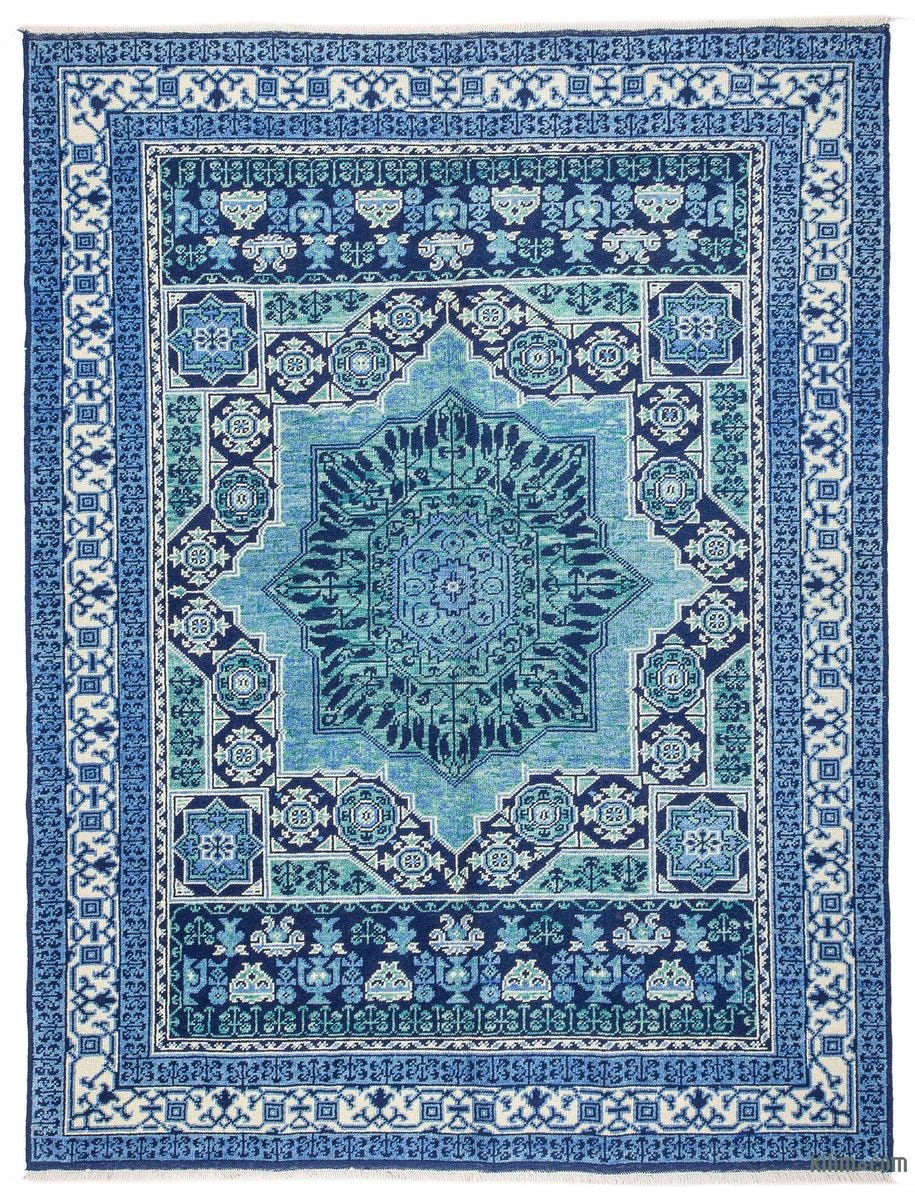
Likewise, in architecture, a big room should have daylight from at least two sides.
If a room follows this rule, it will be pleasant to be in. That is why bay windows make a room so pleasant.

This is exactly the kind of book that will seep into the nooks and crannies of all my future writing.
Above all else, Alexander has a knack for explaining things you’ve always known but never had the words to describe.
Fresh Ideas
North Star Podcast: Jason Stein
Jason Stein was the first person to hire me out of college. He sent me a Direct Message on Twitter, and convinced me to move to New York to work for his company, Cycle.
Jason has successfully predicted the future more than anybody I know, and in this conversation, we explore the future of sports and media.
We discussed:
The Direct-To-Consumer Commerce Boom
Why TikTok is spreading so fast
Jason’s philosophy of “Always be Paranoid”
Collective action challenges in sports advertising
The future of marketing and how product and marketing are increasingly connected
You can listen to the podcast here: Spotify | iTunes | Website
Note: I’m writing an article on friendship and would appreciate your feedback. Will send the article to the first 5 people who respond to this email and are able to make edits.
Coolest Things I Learned This Week
The Rise of Dollar Stores
“Four new dollar stores will open in the U.S. every single day of 2019. That's a new dollar store every six hours. There are more dollar stores than there are Walmarts, McDonald’s and CVS stores combined."
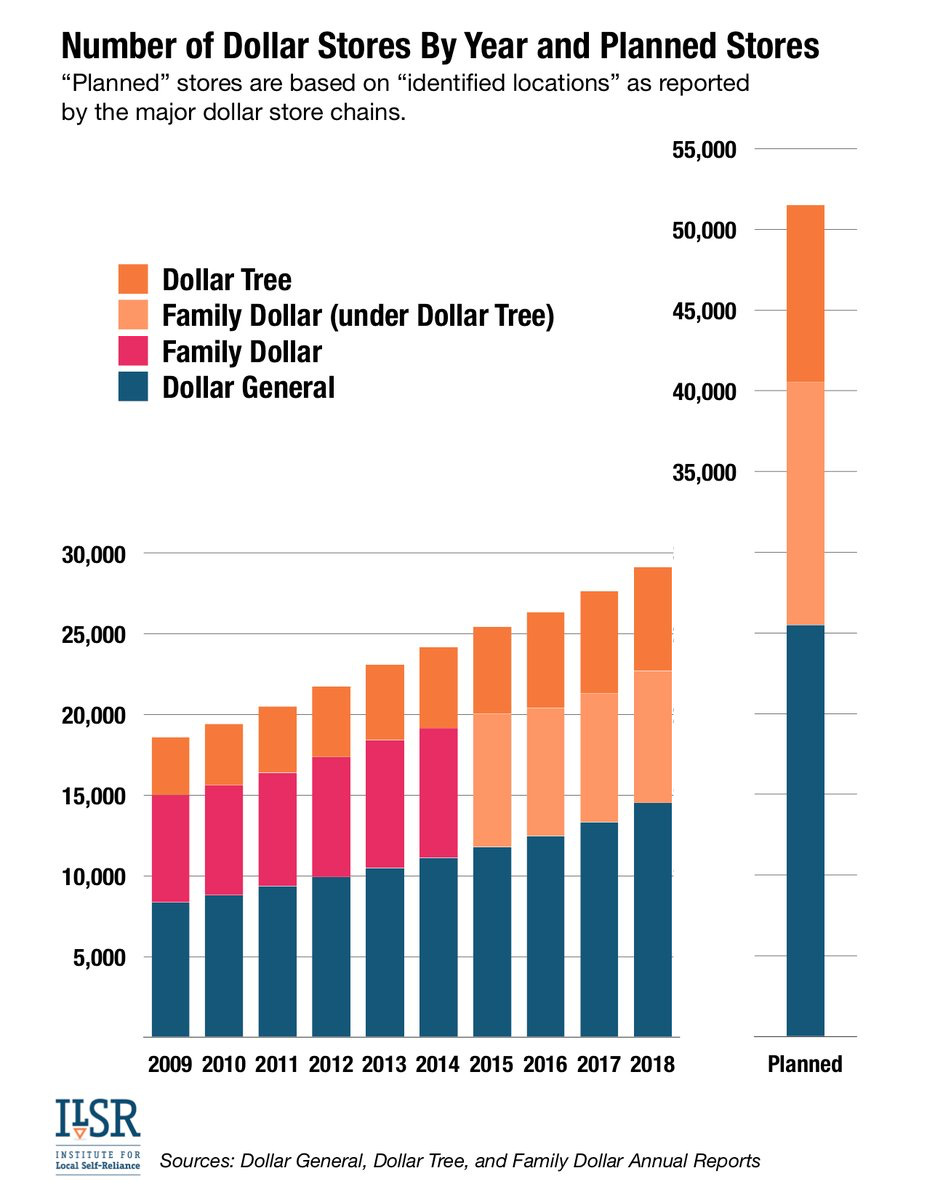
Sprinting Marathons
Eulid Kipchoge won the London Marathon, finishing with a time of 2 hours, 2 minutes and 38 seconds.
It’s the second fastest marathon time of all time and means he ran the 26.2-mile race at a 4 minute and 41 second per mile pace!
This means that the phrase “it’s a marathon, not a sprint” doesn’t hold.
The best runners win with a sub-70 second 400-meter dashes — 105 times in a row. And an average one-mile pace of 4 minutes and 41 seconds is very, very fast.
Wow
Japanese artist Kumi Yamashita winds a single black thread around a grid of nails on a wooden board to create intricate portraits.
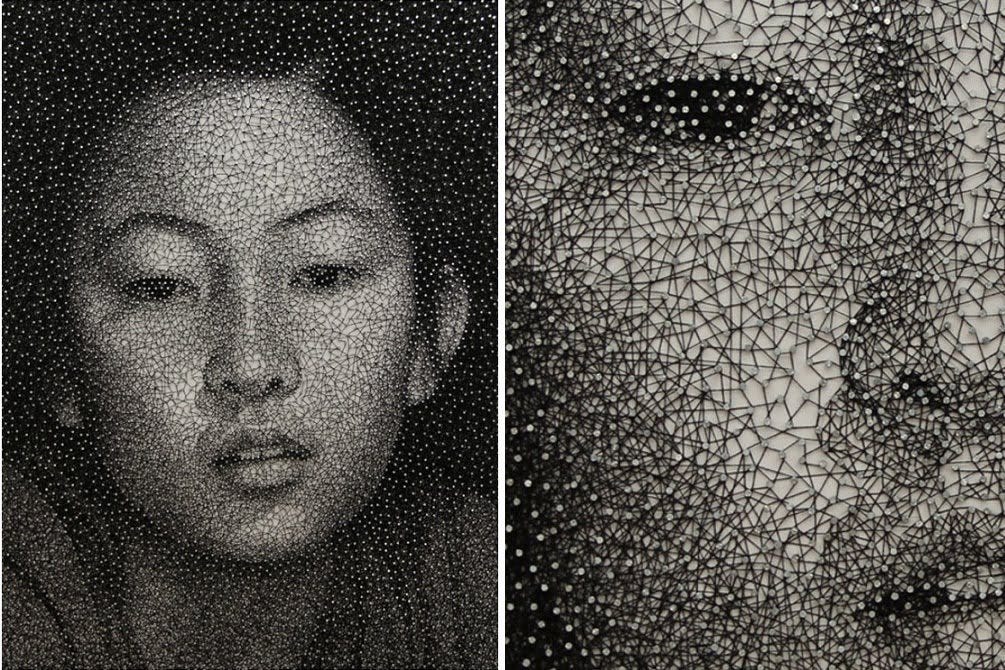
The Brothers Karamazov
I’m reading The Brothers Karamazov by Fyodor Dostoyevsky. This line by the “Elder” named Zosima is powerful:
“Above all, don't lie to yourself. The man who lies to himself and listens to his own lie comes to a point that he cannot distinguish the truth within him, or around him, and so loses all respect for himself and for others. And having no respect he ceases to love… “Above all, avoid falsehood, every kind of falsehood, especially to yourself.”
Zossima believes that if people are completely honest with themselves, they can look within, evaluate their own wrongdoings, and overcome their negative tendencies. But when somebody is dishonest, they are unable to parse good from evil, good from bad, and healthy from unhealthy. And over time, they lose respect for themselves.
It’s a complex book, so I’m reading it with a few friends. Most people recommended the Richard Pevear translation, so that’s why I’m reading. If you have thoughts on the book, please send them along.
William Shockley: On Transformative Innovation

Rory Sutherland: Designing for Humans
Rory Sutherland is on a mission to change the way we design the world. Above all else, I applaud his razor-sharp sense of observation. He’s at his best when he writes about how we ignore human perception and focus only on what’s easy to calculate.
In many areas of life, you want a rational calculus. For example, people who work with nuclear energy or air traffic control shouldn’t be risk takers. They should follow precedent whenever possible.
But in other areas of life, we depend too much on rationality. As one writer wrote:
“[Sutherland] illustrates his idea with a look at HS2, the UK government project to build a high-speed railway running from the north to the south of England.
The cost of the project is £60bn and he thinks it’s a vast waste of money. The government’s case is twofold: that the new railway will save time by allowing new, faster trains and that it will increase capacity.
Sutherland’s case is that passengers don’t necessarily mind how long they spend on a train – their productivity doesn’t collapse to zero when they board a train and it may even go up. It’s the waiting around they don’t like, and that, as well as capacity issues, can be resolved with cheaper app-based solutions.
But the engineers running the project see it as an engineering problem rather than one of passenger experience.
They claim a monopoly on finding a solution to the problem and in so doing they fall into the trap of defining improvement too narrowly.”
I’ve written about Sutherland here and here. He will also be coming on the podcast soon.
Photo of the Week
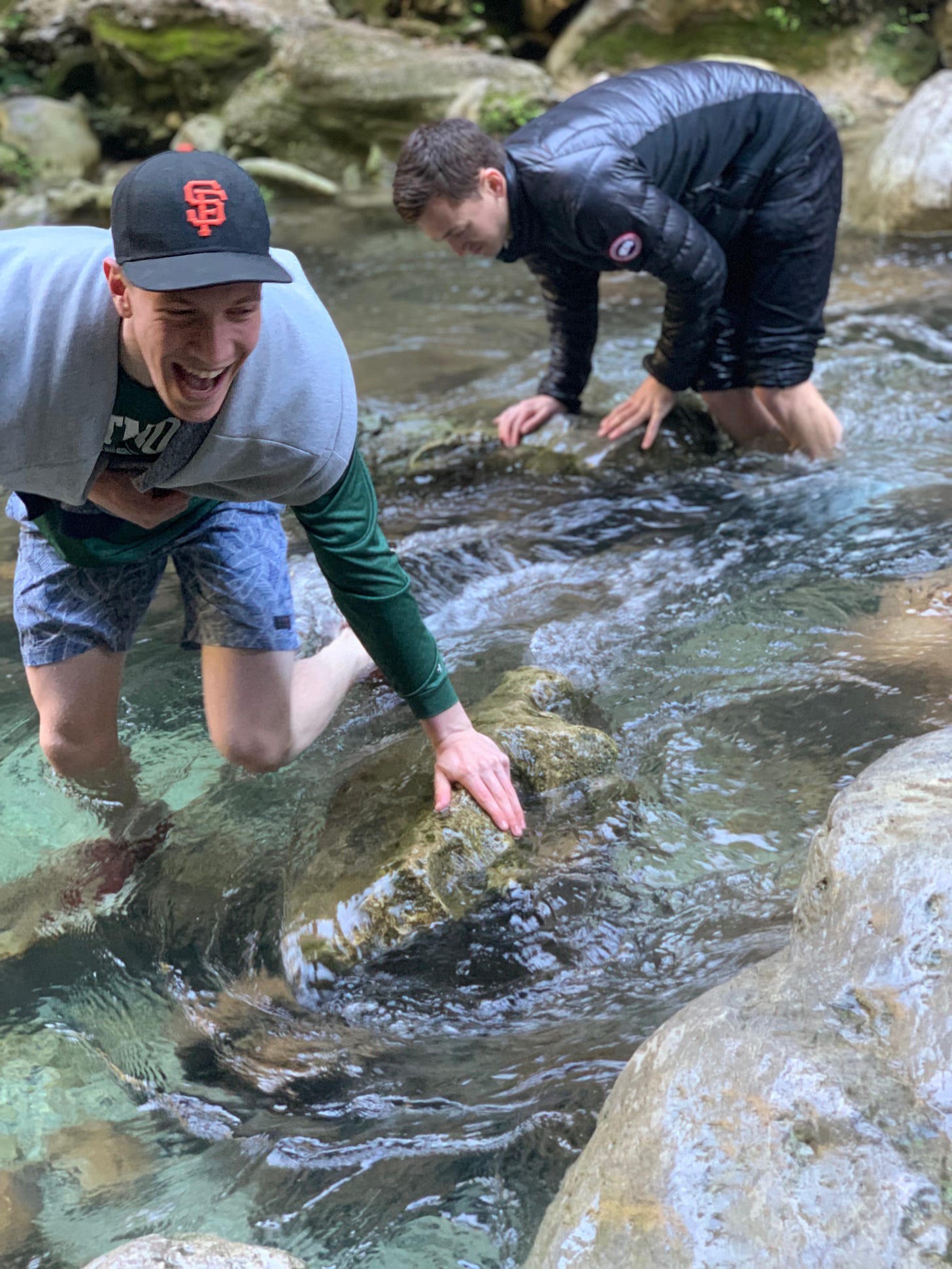

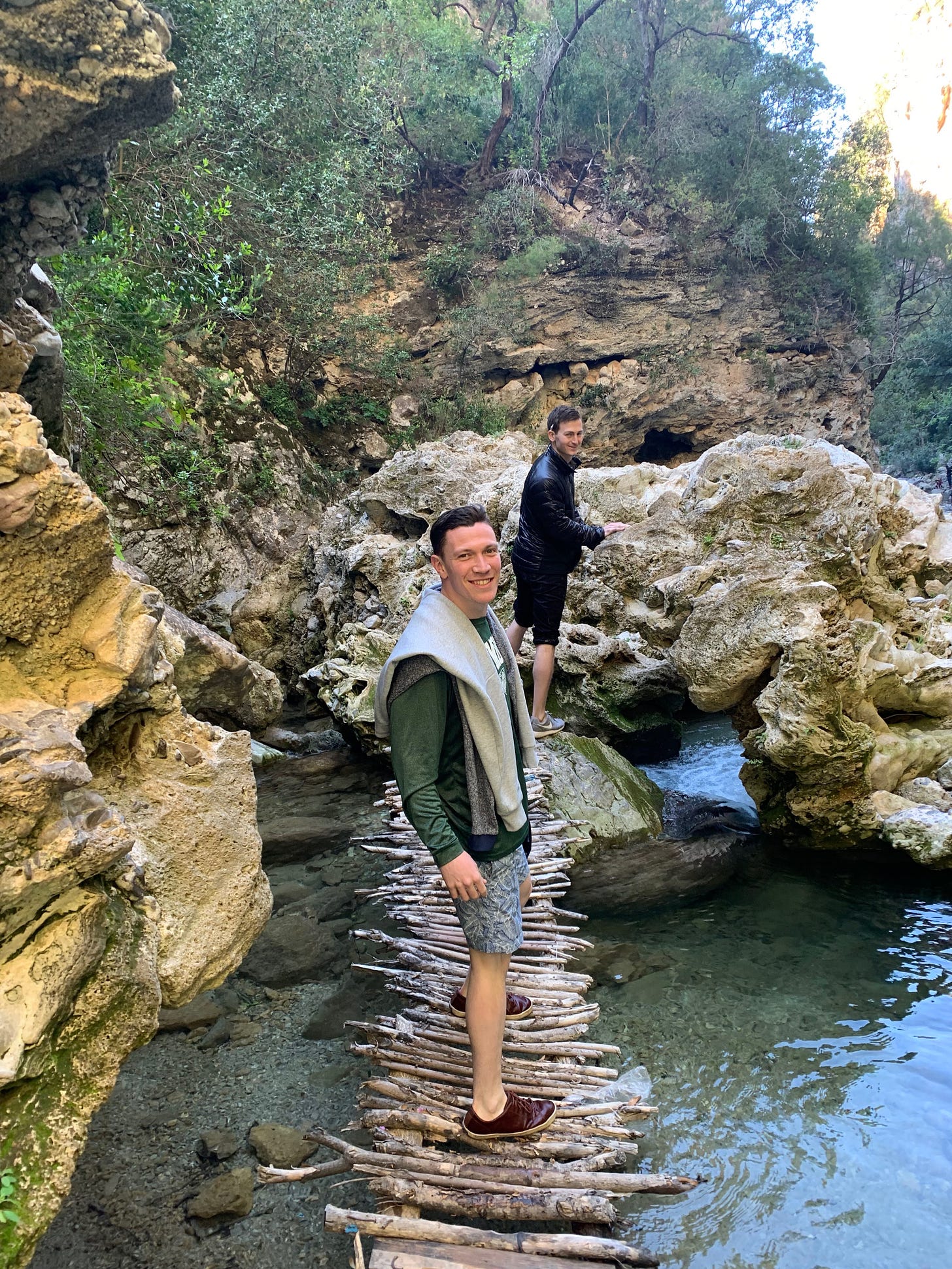
Reading Christopher Alexander makes you think about nature. He says that well-designed places are alive, vibrant, and self-sustaining. They have a “Quality Without a Name,” which is best described through nature-specific metaphors.
Earlier this month, while swimming under God’s Bridge in the Rif Mountains in Northern Morocco, I felt the “Quality Without a Name.”
The hike was strenuous. We crawled through water, climbed around boulders, and stepped on rocks so sharp that they felt like needles. According to one Belgian couple, two people had recently died on a similar hike. True, false? We’ll never know.
But we believed it.
Luckily, we had an excellent local guide who led us along the path. Without our trusted guide, we wouldn’t have been able to do the hike. As a reward for navigating the tricky terrain, we spent some time swimming in the ice-cold water underneath God’s Bridge, the jaw-dropping arch in the photo above.
Down in the valley, we heard nothing but intermittent bird chips and the steady flow of water. No wind. No people. Just the endless flow of nature. The Quality Without a Name.
Until next week,
David Perell
P.S. If you enjoy Monday Musings, please share it with a friend. You can forward the email, send them a link to the newsletter, or encourage them to sign up here.
Monday Musings takes a few hours to write every week. The more people who are on the list, the more time I can invest in making it worth your time.
